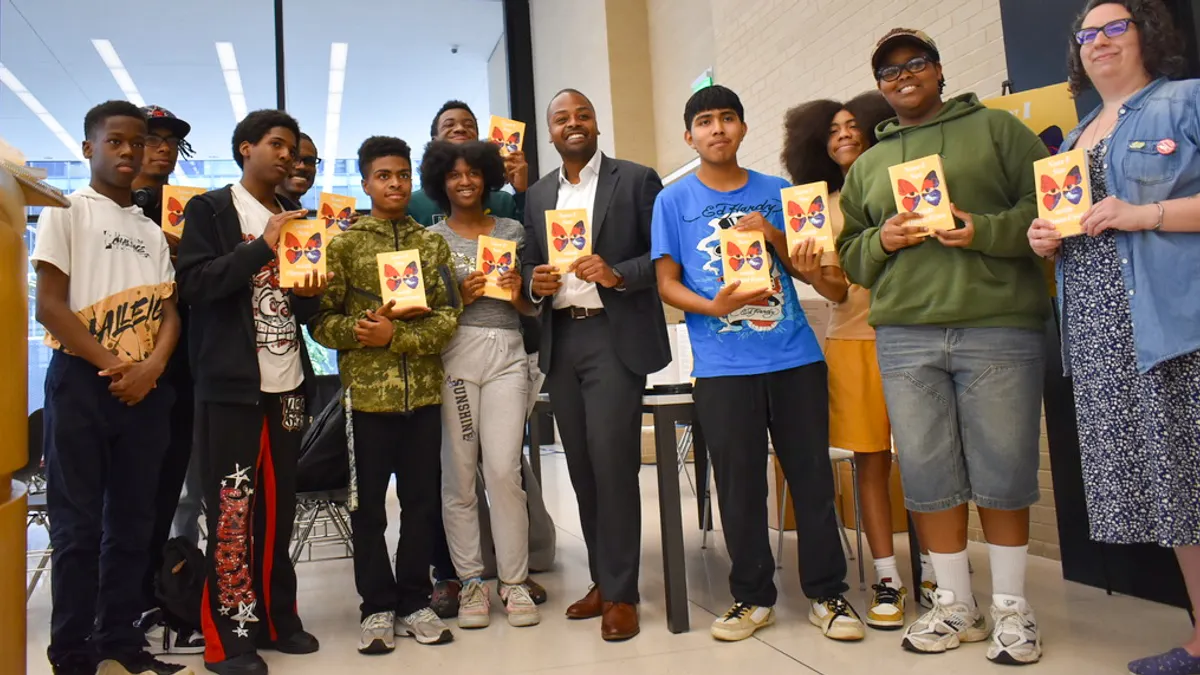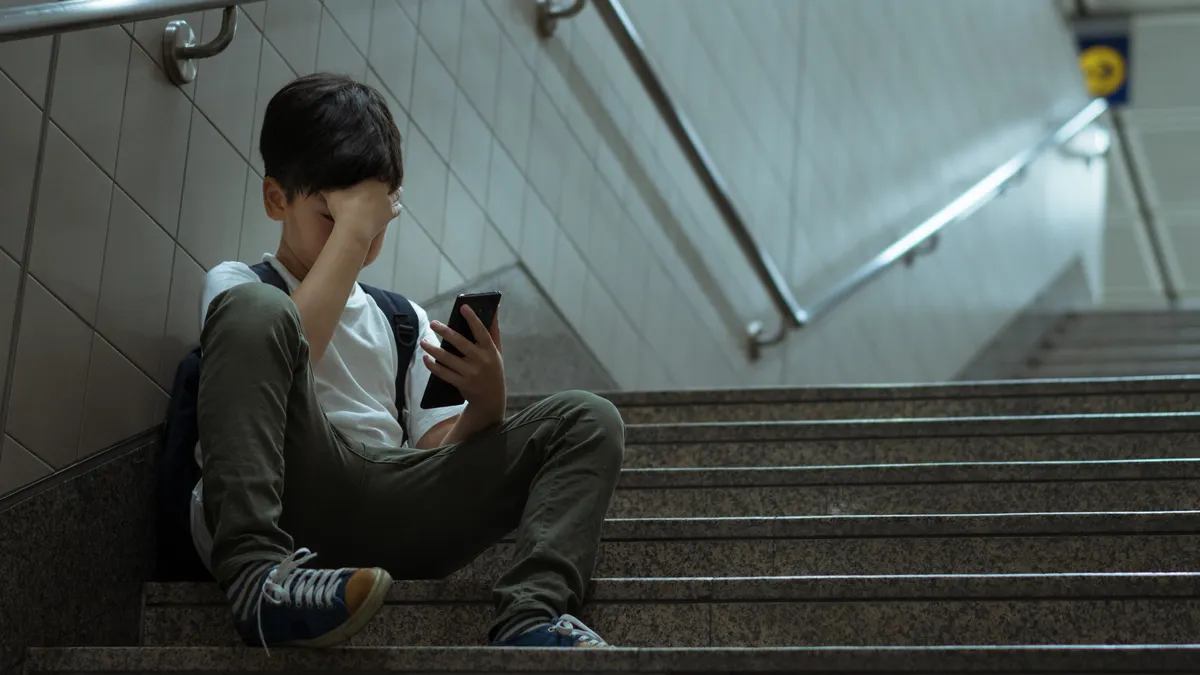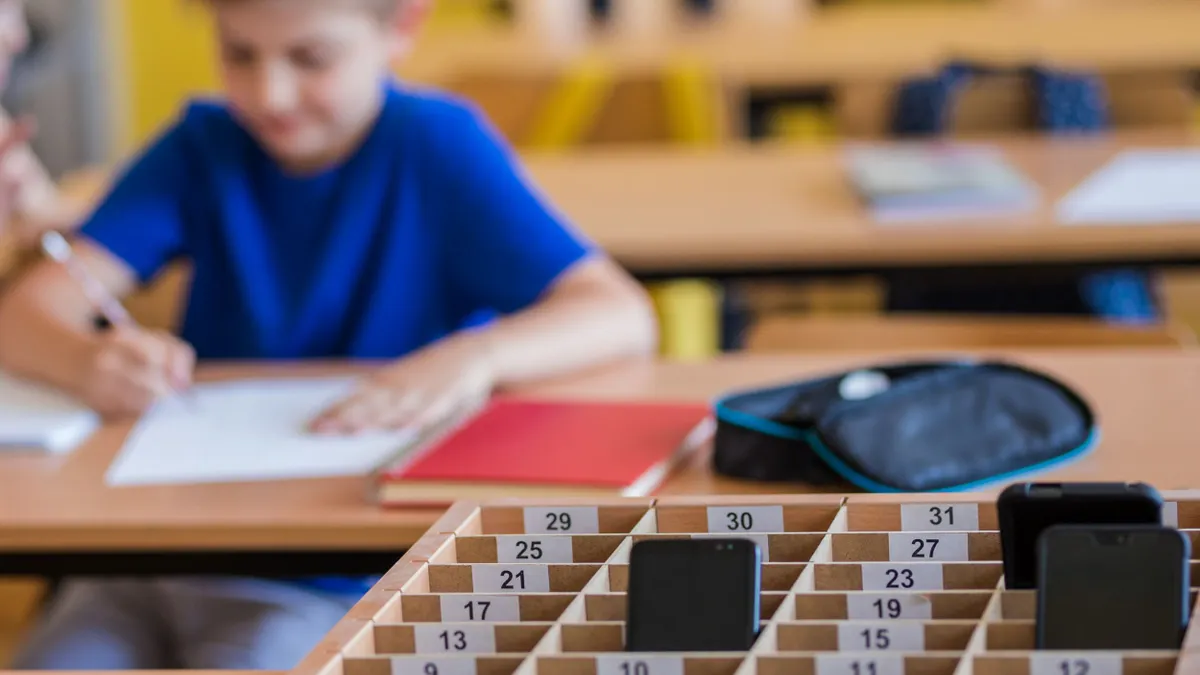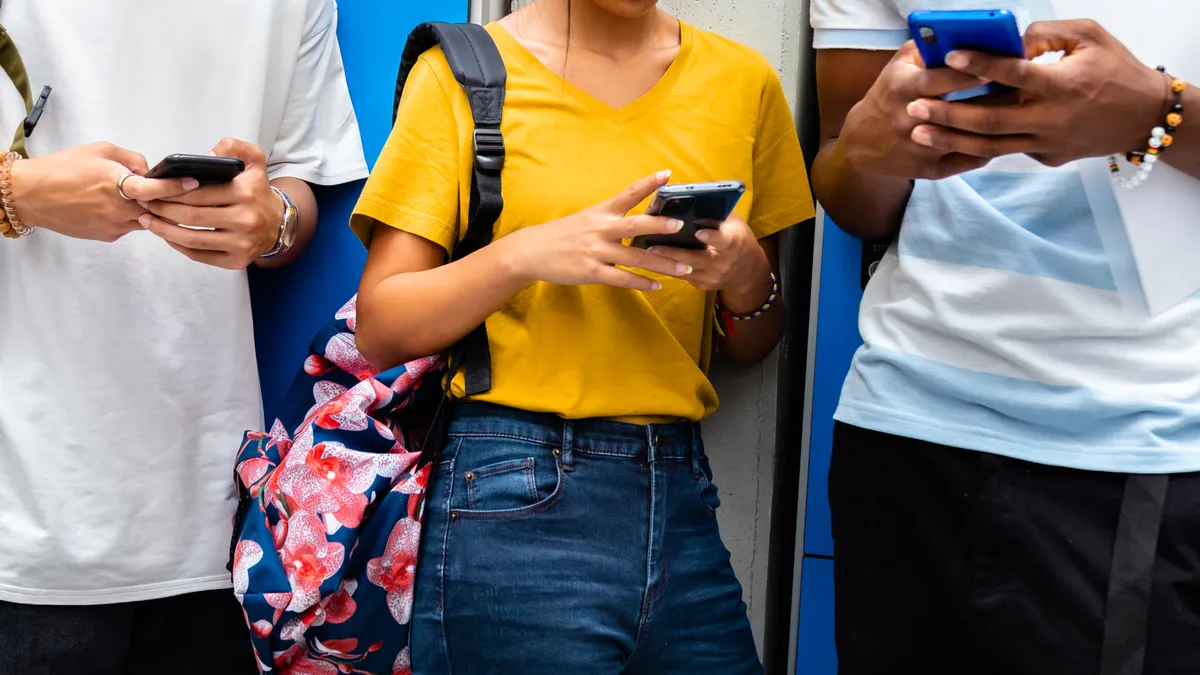Michelle King is the new superintendent of Los Angeles Unified School District, the second-largest school district in the United States. She’s also the first black woman to hold the position — not to mention a product of LAUSD schools herself, having attended Century Park and Windsor Hills elementary schools, Palms Junior High School, and Palisades High School.
Before becoming LAUSD’s top leader, King served for 30 years in the district. The list of roles she's filled includes teacher, coordinator, assistant principal, principal, chief administrator of secondary instruction, local district superintendent, chief of staff to the superintendent, senior deputy superintendent, and chief deputy superintendent.
King, who is also currently working on her doctorate, spoke to Education Dive about her new appointment, her hopes, and how she plans to tackle the many problems — school segregation, charter fights, budget crunches, and a federal investigation into a canceled iPad initiative, just to name a few — the district is currently facing.
EDUCATION DIVE: Back when you were a student at Palisades Charter High School, classes — especially higher-level ones — were extremely segregated. Today, many still are. How best can segregation be addressed today?
MICHELLE KING: We are fortunate to be working in an age where institutional segregation is a thing of the past. However, we are far from where we need to be in terms of providing equity and access to students from all walks of life. Many barriers continue to challenge some students more than others. Our job is to understand those barriers and provide the supports needed to help every student overcome any barrier so that we are getting all students to graduation, college-and-career-ready.
Do the requirements instated by the Office for Civil Rights after its 2010 investigation of L.A. Unified do enough?
KING: If we are doing the right thing for all of our students, then mandates wouldn’t be necessary. My goal is to do the right thing for all our students, and in doing so, satisfy any mandates at the state and federal levels. I fully agree with the recommendations of the Office of Civil rights and intend to do all we can to address all recommendations fully. Ultimately, there is always more we can do to ensure equity and access for all.
How does restorative justice work in an educational context, and why is it important?
KING: Restorative justice is a fresh approach to student discipline, shifting the focus away from punishment and toward deeper and longer-term supports that set students on an upward path toward good behavior and citizenship. It is important to the educational process, as it reduces absenteeism while promoting long-lasting pro-social relationships, and a positive school-going culture.
Can you, very briefly, name a few top priorities for the 732,800 students served by the district? What’s at the top of your list?
KING: Top priority: getting every student to graduation, college-and-career-ready. Supporting this goal, balance the budget for three years by investing wisely in the supports all students need at all grade levels to stay on track to graduate. Also imperative to achieve this goal: Effectively engage every family and every community. If students could get to graduation on their own, we wouldn’t need to be here.
How did your work as a teacher inform your evolution into an administrator?
KING: Having been a teacher for many years, I understand the lens through which teachers approach their work every day. I know the challenges they face and the supports they need to do the best job they can. Our work as administrators and district leaders is to support our teachers with everything they need to face all challenges and focus on helping every student stay on the path to success. By incorporating a strong teacher perspective in every strategic conversation we have, we ultimately provide the best for our students.
You are the first first African-American woman to hold the position of superintendent for L.A. Unified. Is there anyone in particular who has been instrumental to you along your professional career path, through mentorship or other means? From where do you draw inspiration?
KING: I was always inspired to work hard and dream big by my parents and family. Through the years, all of the wonderful people I’ve been honored to work with have inspired me with their dedication to service. Even more so, I am inspired by all of the amazing students I come into contact with every day. I now hope to serve as a source of inspiration for others as well, encouraging all to study, work hard, and achieve their dreams.
Right now, the district faces a number of tough issues, including an ongoing federal investigation into the rollout of a 1:1 iPad initiative. What’s now happening with district-wide tech initiatives? What, if any, effect does the FBI's investigation have on this?
KING: We are moving forward with the integration of technology into the learning environment, ensuring that supporting instruction is at the forefront of every conversation. To that end, we are continuing regular meetings of the Instructional Technology Initiative task force — a collaborative of teachers, parents, administrators, and technology resource experts — to guide us in developing a comprehensive plan for incorporating classroom technology over the next five years.
Some of the candidates considered by the L.A. Board of Education for the position of superintendent reportedly backed away due to the various problems that need to be parsed and resolved, including declining student achievement, an ongoing budget crisis, and divisive city politics. The Los Angeles Times reported an independent review panel found that the district is facing a $333 million deficit by 2017-18. That number is unfortunately predicted to roughly double by the year 2020. Where are you going to start on a huge issue like the budget?
KING: We are already working to capitalize on the recommendations of the Blue Ribbon Panel, a team of experts who carefully analyzed our financial situation and provided guidance to address it. I plan to convene study sessions with the Board in which we take deep dives into the recommendations from the panel and find common understanding on how to invest wisely in our educational priorities.
Powerful interests are committed to the expansion of charter schools in LAUSD, with the Broad Foundation spending upwards of $490 million in an attempt to enroll half of the district’s students in charters in the next eight years. This is a heated and controversial topic. Where do you stand on the issue?
KING: All students are our students. I do not plan to work for or against this proposal. I do not believe this has to be an either/or conversation. There are amazing things happening instructionally across our district, in charter schools and traditional schools alike. My direction is to work collaboratively to provide opportunities for all students, whichever schools they attend.
If you had to state your educational philosophy in just a few sentences, what would it be?
KING: My philosophy is that it all comes down to getting every student to graduation, college-and-career-ready. We do this by creating conditions necessary to support every student at every level starting in pre-kindergarten. We invest our finite resources intelligently to maximize the degree of support we can offer. And, most importantly, we effectively engage every family and every community in the process.
Would you like to see more education news like this in your inbox on a daily basis? Subscribe to our Education Dive email newsletter! You may also want to read Education Dive's conversation with former U.S. Secretary of Education Arne Duncan about ESSA, Common Core, his regrets, and the state of Chicago Public Schools.





 Dive Awards
Dive Awards














